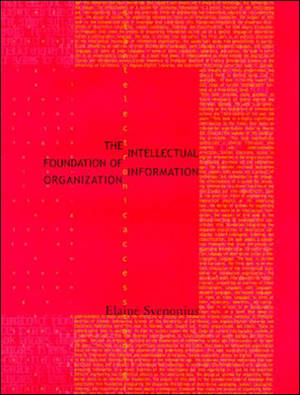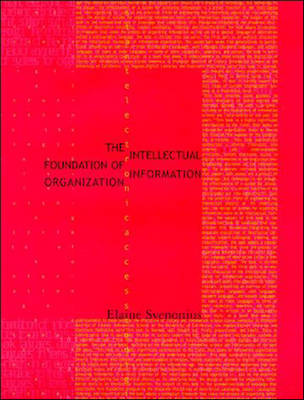
- Retrait gratuit dans votre magasin Club
- 7.000.000 titres dans notre catalogue
- Payer en toute sécurité
- Toujours un magasin près de chez vous
- Retrait gratuit dans votre magasin Club
- 7.000.0000 titres dans notre catalogue
- Payer en toute sécurité
- Toujours un magasin près de chez vous
Description
Instant electronic access to digital information is the single most distinguishing attribute of the information age. The elaborate retrieval mechanisms that support such access are a product of technology. But technology is not enough. The effectiveness of a system for accessing information is a direct function of the intelligence put into organizing it. Just as the practical field of engineering has theoretical physics as its underlying base, the design of systems for organizing information rests on an intellectual foundation. The subject of this book is the systematized body of knowledge that constitutes this foundation.
Integrating the disparate disciplines of descriptive cataloging, subject cataloging, indexing, and classification, the book adopts a conceptual framework that views the process of organizing information as the use of a special language of description called a bibliographic language. The book is divided into two parts. The first part is an analytic discussion of the intellectual foundation of information organization. The second part moves from generalities to particulars, presenting an overview of three bibliographic languages: work languages, document languages, and subject languages. It looks at these languages in terms of their vocabulary, semantics, and syntax.
The book is written in an exceptionally clear style, at a level that makes it understandable to those outside the discipline of library and information science.
Spécifications
Parties prenantes
- Auteur(s) :
- Editeur:
Contenu
- Nombre de pages :
- 274
- Langue:
- Anglais
- Collection :
Caractéristiques
- EAN:
- 9780262512619
- Date de parution :
- 01-03-09
- Format:
- Livre broché
- Format numérique:
- Trade paperback (VS)
- Dimensions :
- 161 mm x 223 mm
- Poids :
- 362 g

Les avis
Nous publions uniquement les avis qui respectent les conditions requises. Consultez nos conditions pour les avis.






